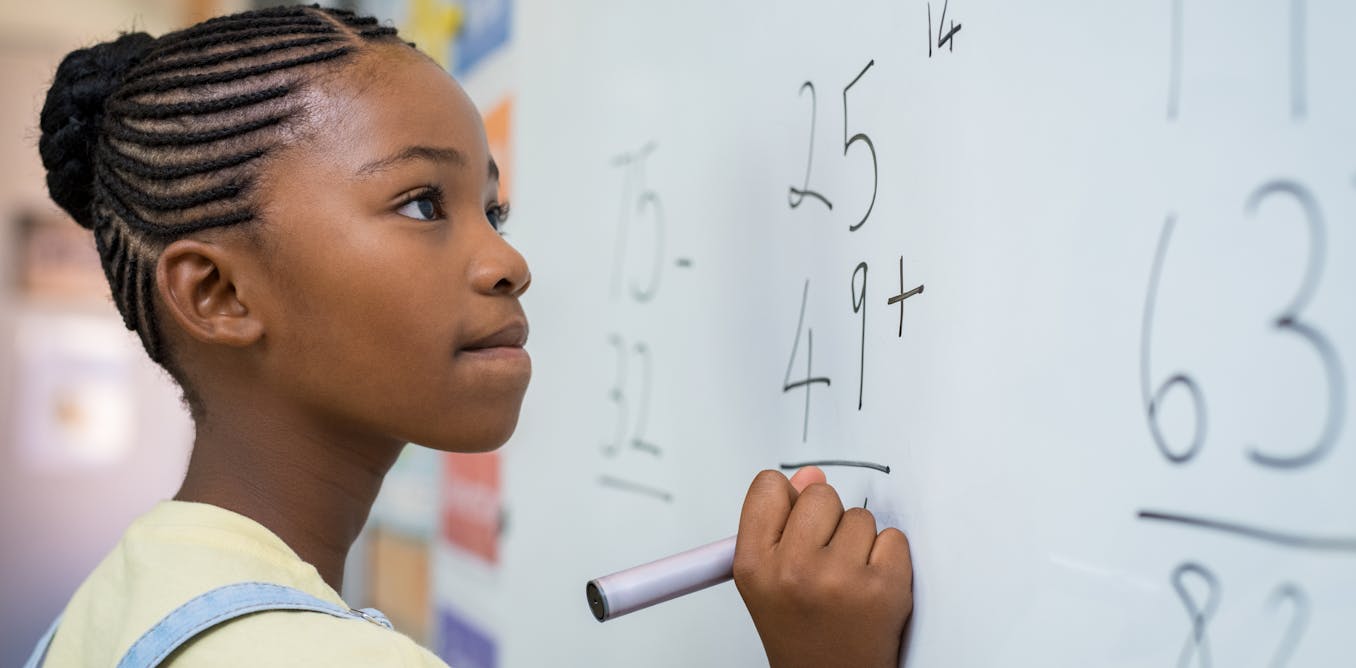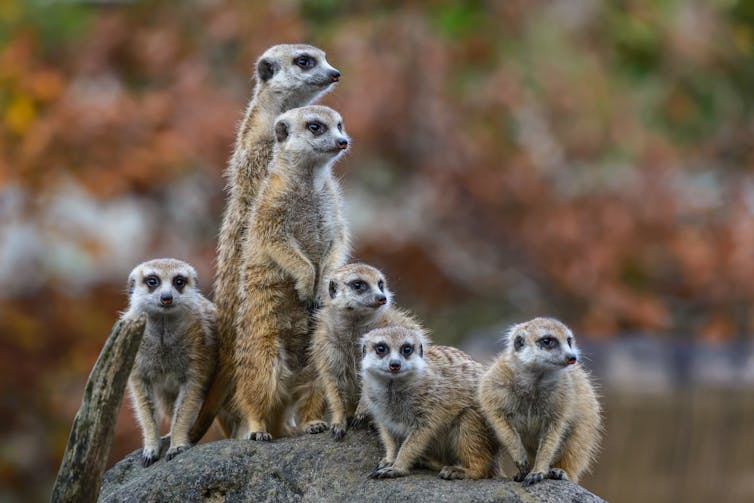
Curious Kids: why didn't other creatures evolve the intelligence humans have?
Having intelligence helps humans survive.
Jan. 5, 2022 • 5 min • Source
If humans and other animals were living in the same environment, why didn’t other animals evolve like us? – Sami, aged 13, London, UK
This is a brilliant question. Humans have evolved differently to other animals. We have much bigger brains relative to body size and in absolute size than other mammals, and have a level of intelligence that other animals don’t.
There are many advantages to intelligence, such as the ability to plan and cooperate, innovate new techniques and share information about what works.
The reason that living things evolve certain features, like stripes on a tiger, bright colours on a butterfly or a big brain in humans, is that these features have benefits that help them survive. The living things with these beneficial features then pass them on to their offspring.

Curious Kids is a series by The Conversation that gives children the chance to have their questions about the world answered by experts. If you have a question you’d like an expert to answer, send it to [email protected] and make sure you include the asker’s first name, age and town or city. We won’t be able to answer every question, but we’ll do our very best.
There are a number of hypotheses – ideas – about the origins of human intelligence. The one I do my research work on is called biocultural reproduction .
Having big brains allows humans to keep more babies alive than other animals. According to the biocultural reproduction hypothesis, how intelligence helps us to keep babies alive comes down to how we care for each other – and especially how we look after children.
Helping each other
Many animals live in small or large social groups, and some social species of birds and mammals, such as meerkats, help each other to feed and protect their babies. This is called cooperative breeding . The helper animals don’t have any babies of their own. They give up their own reproduction to assist a dominant family member, such as their mother or older sister.

People are different. Anyone who wants to and is able to have a baby can do so. Not all human parents can or will care for their own babies, but other people often take care of the children of others.
Parents and other carers may invest in young people for many years, sometimes for all their life. I am a parent and I continue to help my grown-up offspring, and their offspring – my grandchildren. This helping is what scientists call biocultural reproduction .
The carers may be genetically related to the child they look after, but they also may not be. The rules for how people care for each other are not set by genes, but by the names we give each other. These are not names like Sami or Barry, but things like “daughter”, “auntie”, “grandfather”, “cousin” or “friend”.

Using names like these requires symbolic language . This means that the names we call each other represent ideas about how we should treat each other. Only humans and some of our ancestors evolved this kind of symbolic communication.
We might call our friends “sister”, “brother” or “cousin”. In many human societies, younger people refer to older people they are not genetically related to as “auntie” or “uncle”. Some religious leaders are called “father”, “mother” or “sister”. These names are used as a sign of respect and also give us information about our relationships with these people.
Big brains needed
This naming thing that people do is complicated. Big-brained intelligence is needed to remember all the names and the lifelong history of interactions that we have with family and friends.
Our closest biological cousins, such as chimpanzees, have brains only one-third the size of ours. They do not use symbolic language or call each other by names. Mother chimpanzees care for their own infants and no other chimps help, not even fathers or grandparents. Only one-third of chimpanzee babies survive to adulthood.
In contrast, the wide range of people who provide care – including feeding, care when ill, education, money and love – means that human babies are more likely to survive and thrive. Big-brained intelligence helps us care for each other and helps to explain, in part, why the human population is approaching eight billion people.
Barry Bogin does not work for, consult, own shares in or receive funding from any company or organization that would benefit from this article, and has disclosed no relevant affiliations beyond their academic appointment.

